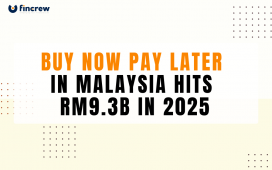Over time, debit cards have become both my best friend and my worst enemy. There was no place I didn’t use it. I spent my money quickly that it was suddenly too easy to do so. With so many swipes of my debit card, I wondered if I was spending any money. I became accustomed to mindless spending and emptied my bank account. I counted the days until payment week after week, only to repeat the cycle. To make matters worse, I had to rely on credit cards to make ends meet between paydays. My life changed when I learned about the cash envelope budgeting system from a good friend. For starters, here’s what you need to know
What Is Cash Envelope System?
It is a budgeting method that separates your spending money into physical envelopes labeled with different budget categories, such as groceries, gas, and entertainment. This system aims to help individuals stick to their budget by physically limiting the amount of money available in each category.
Who It’s Best For?
A cash envelope system is best suited to people who prefer a tactile approach to thinking and working. Setting a budget and keeping cash for your amount is literal and tangible. In contrast to a debit card, you can see how much you have and how much you spend.
How To Get Started?
Here’s how the cash envelope system works:
- Determine your budget categories: The first step in using the cash envelope system is deciding on the types of spending you want to track. Some common types include groceries, gas, entertainment, bills, and clothing.
- Set budget limits for each category: You’ll determine how much you spend in each category. It will depend on your income and financial goals. For example, you might allocate $100 per week for groceries and $50 for gas.
- Withdraw cash for each category: Once you set your budget limits, you’ll need to withdraw the appropriate amount for each type. You can do this all at once or withdraw cash as required.
- Place the cash in labeled envelopes: Once you have it, you’ll need to place it in labeled envelopes for each budget category. For example, you might have an envelope marked “groceries” with $100 in it and another envelope labeled “gas” with $50 in it.
- Use the cash for purchases: When you need to purchase in one of your budget categories, you’ll use the cash from the corresponding envelope. For example, if you need to buy groceries, you’ll use the money from the “groceries” envelope. If you run out of cash in a separate envelope, you’ve reached your budget limit for that category.
The system stays on track with your budget, forcing you to be mindful of your spending and helping you avoid overspending. It can also be helpful for those who need help with using credit cards or who prefer to use cash for their purchases. One potential drawback of the cash envelope system is that carrying large amounts of cash can be inconvenient. Additionally, if you lose an envelope or have it stolen, you’ll lose the money it contains. To mitigate these risks, consider using a combination of cash and debit or credit cards or a budgeting app that allows you to track your spending in different categories.
The cash envelope system is a simple but effective budgeting method that can help you stay on track with your spending and achieve your financial goals.





